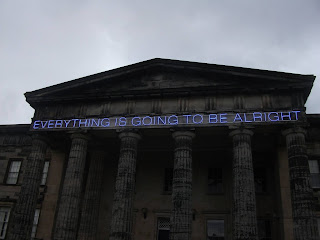Snake Oil – Marketing your novels – what has worked brilliantly for you
and what has been a miserable, terrible waste of time and effort?
There used to be a neat division between marketing and promotion. Promotion was free and marketing you paid for. So advertising was marketing and editorial interviews was promotion. I felt proud of knowing the difference.
Then the world turned and things changed and now we're asked by Facebook if we'd like to boost that photo of our cat lying on a keyboard for $10 a day. And knowing the difference between marketing and promotion is about as useful as knowing Doric, Ionic and Corinthian pillar tops. Strictly for the pub quiz.
Which are these?
All of that is my excuse for talking about promotion instead of marketing here today. And in celebration of the news from Pfiser, Moderna and Oxford, I'm only talking about face-to-face stuff. Because the day will come, next year it looks like, when we're saying "I haven't had time to look at Twitter all night because I met these lovely people in the bar and we went for a curry". I'm looking forward to that very much, although the optimism is set against the fact that 270,000 and counting in this country alone won't be there to revel in any return to normality.
For now
Bookclubs are the most intimate promotional events. So much so that it feels wrong to think of them as promotional events at all. Being invited to someone's house to drink wine (well, club soda for me) and eavesdrop on a bunch of friends talking about a book they read, that you happen to have written? I love it! I do sometimes worry that the bookclub members think they have to be polite and positive. And I worry even more that they make themselves talk about the book more than usual, because I'm sitting there like the ghost of chapters past, but I can tell from the number of bookclub members who then show up at my next launch, that this is a solid good all round.
Libraries are my spiritual home. I'm second generation library on my mother's side and all of my childhood reading came from a public library, except a book at Christmas and one for my birthday. So even if library events were reliably awful, I'd still do them - to say thank you. And they're not. Sales at library events are always light (and sometimes disallowed) which is as it should be. Why would people spend $20 on a book when they are right there in a lending library? But what does happen if the event goes well is that the dedicated library-users mob the librarian on duty and demand that more of your books are ordered right now. Would I ever look to see what books of mine a library has and be sure to focus on the others? How very dare you.
Two of my favourite people, in one of my favourite libraries
Bookshops aren't just for Christmas now that I'm grown up and not one of four children who keep growing out of their shoes. I like the baking and wine-buying and bookmark-ordering that goes with a live launch in a bookshop, and the Avid Reader in Davis, CA, always does a window display that makes me feel like a rock-star. That's the upside. On the downside, I have driven, and even flown, to bookshops to do readings where there were only a handful of people and most of them just there for the A/C. It's a remarkably painful experience. When no one turns up at all, it's fine. You sign stock, leave, and go home to eat worms. Worst of all is when you think no one's coming and then one person does and it's an ex-boyfriend. That hasn't happened to me, but it has happened.
So I'd be tempted now to go by Dana Kaye's advice: if you can't drum up forty people in a city that you can email an invitation to, don't go. Unless you're Charlaine Harris or Harlan Coben, obvs. But hardly anyone is.
Fundraisers are the polar opposite of random bookshops in distant cities. A country club brunch, a banquet with live auction, a fair to fix the roof of a firehouse . . . these are places where people with money to spend come to spend money. Once, in my early days, I did a fundraiser in a golf club clubhouse, where I set out what I thought was an optimistic pile of books on a table. The organiser rushed over and asked where the rest were. "Coming" I said. Then phoned Neil and begged him to "Bring more books!" He brought everything I had and I sold every last one.
One piece of advice I'd give for fundraising events, at least for traditionally published authors. Cover your costs and donate your profits to the good cause. It's nice to be nice (and it shifts more books).
Expos are a wee peek into being Charlaine or Harlan. Because it's amazing how long the snaking line of people who're dying for your book can get if it's free. I kind of love expos. They're always in big cities and, for a person who lives up a dirt road, that's exciting. Also, they're full of librarians and booksellers. My people! And when I'm not sitting chatting and signing at my publisher's booth, I am out on the floor snagging books. I mentioned they were all free, right? Is it good marketing to give books away? All I can tell you is that after I picked up THUG on an expo floor, I bought Angie Thomas's follow-up as soon as it was out. On the other hand, someone taking a quick look at your book and visibly shuddering before rushing off hurts even more when the book is free.

Conventions are a thorny one. Left Coast Crime, Malice, Bouchercon . . . they are sparkling jewels in my year, and missing them is one of the many major ways 2020 has sucked like a demonic Dyson. Old friends, new friends, old stories, new scandal, favourite authors, debut authors, and books, books, books. I've never even tried to work out if four days in - say - Vancouver, going out for every meal, wearing all new clothes and shipping home two boxes of hardbacks, is good business. I spend 48 weeks of every year, not just this one, alone in a room and conventions are reward and respite.
Three hard-at-work writers in Vancouver
So, I'd say if you enjoy conventions, and can afford them, go and don't feel guilty. If you want to go but you feel shy or panicked about the size of the crowds, come and say hello - I'm the tall one with the platinum hair and the red face. I will introduce you to some lovely people and demonstrate the first rule of a con: there's always room for another chair at any hotel table. One condition: talk about the books you're reading, not the book you wrote. That's the one thing that can make a con no fun at all.
Festivals look like cons to the non-writer attendee. Maybe the difference, to a reader, is you buy tickets to individual events rather than a four day jamboree. The difference for a writer is that your publisher pays for your hotel and the festival organiser pays you an honorarium to appear. So if you get the chance to go to Bloody Scotland, Harrogate, the Edinburgh Festival or Crimefest, grab it. They are serious readers that roll up every year, and deadly serious book-buyers. It's a no-brainer.
At Harrogate, with Ali Karim
Knees-ups Publishers have drinks parties at cons and festivals. Some of them have huge parties just cos. Sounds great, eh? I'm sure it is for some people. I, on the other hand, am hopeless at cocktail parties. I can't join groups in any way that's not awkward and liable to end conversations. For sure, I can't leave conversations to do that circling, mingling thing. And I can't ever manage to pitch the chatter at the right level between inanity and over-earnestness. I don't know what the problem is. I love a dinner party, a late-flight gate get-together, or an impromptu soiree on a mezzanine with wine and music, and I never eat breakfast alone in a hotel if anyone I know is in there before me . . . but something about standing up with a glass and a quail's egg turns me into a social disaster.
So I'm pretty sure that none of these shindigs I've ever attended has done me any good or won me a single reader. Thank God I don't wear heels so at least the hours of embarassing effort aren't hurting my feet too. (But if anyone reading this has got cocktail party tips, please let me know.)
Oh and one other thing. I've had two books come out in the last week or so. THE TURNING TIDE is now in America, and the hardback SCOT ON THE ROCKS is out in the UK.






























